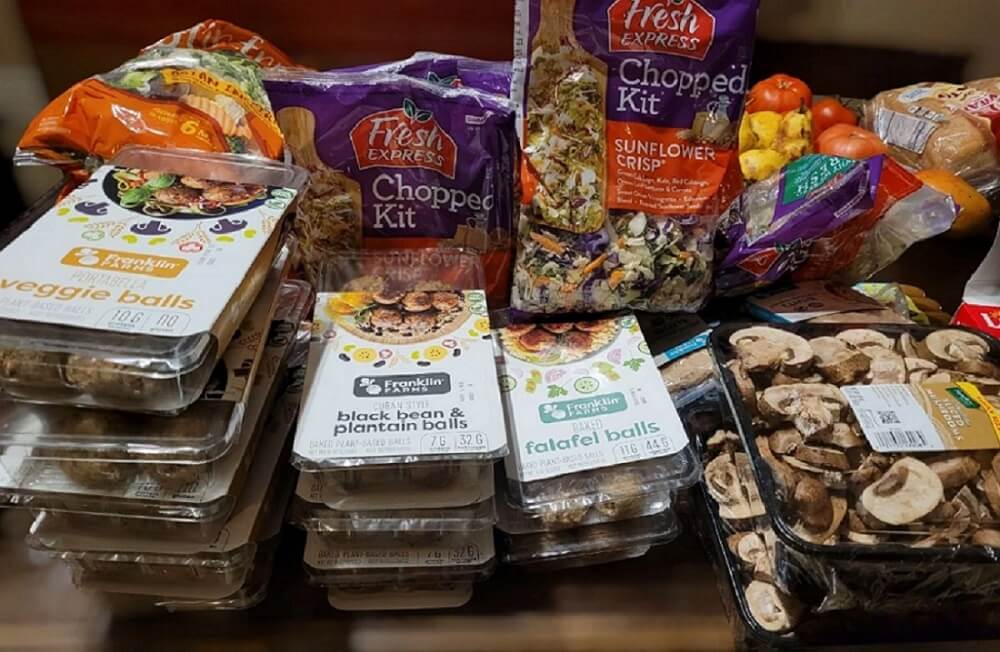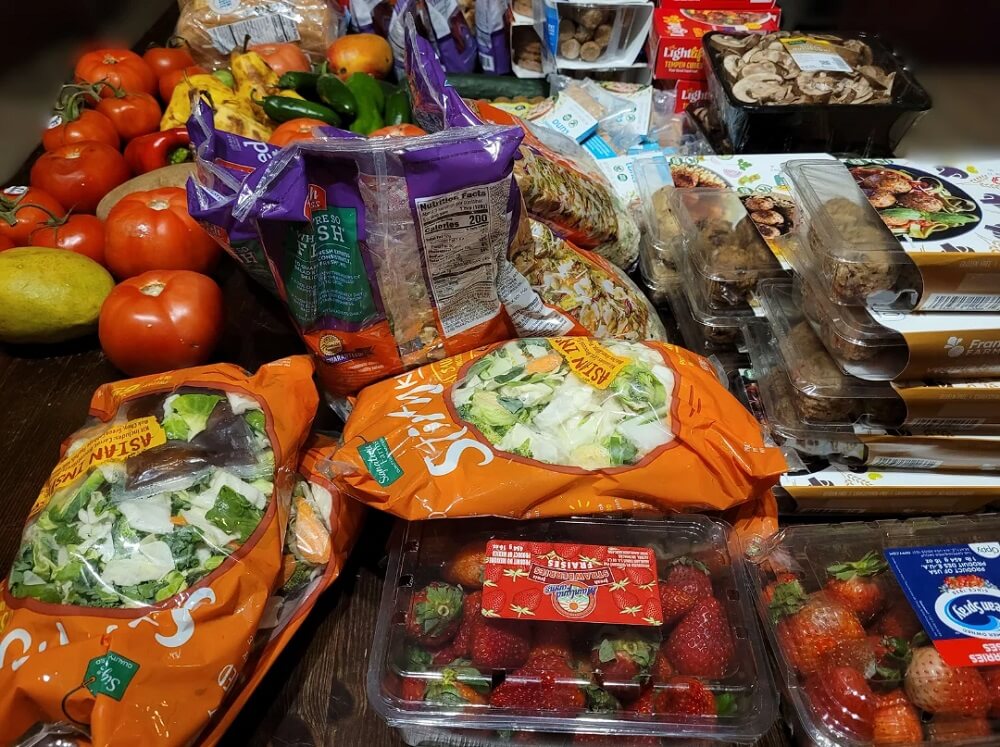A dumpster diver's major score from a supermarket giant's bins had other Redditors celebrating the free haul but spotlighted the widespread issue of seemingly unnecessary food waste.
What happened?
A Redditor shared a series of photos in the subreddit r/DumpsterDiving, explaining in a comment that they made the lucky find in the late afternoon at a Safeway.


"Found $534.93 worth of food!" they exclaimed, making their estimate based on prices from Instacart. They added: "I couldn't find many of the products listed at a cheaper price anywhere else. Some other sources had them priced even higher than Instacart."
The first image reveals a table stacked with fresh produce, bread, salad kits, a variety of vegan proteins, and more.
"I'm jealous of all the vegan stuff!" one commenter wrote. "That would have my household set for months."
"That's an awesome haul!" another person agreed.
Why is this important?
The comment thread was overwhelmingly in awe of the stunning find, and it's not hard to see why. According to the U.S. Department of Agriculture, food prices in the United States increased by 25% from 2019 to 2023.
The original poster was fortunate to discover the free goods. However, their images indicate that an incredible amount of food was intended for the dump, where the items would rot and produce methane, a potent gas that is 28 times more powerful at heating the planet than carbon dioxide over the first 20 years.
Warmer global temperatures have supercharged our weather, and the uptick in severe extreme events has contributed to food insecurity and higher costs at the grocery store.
Moreover, many of the items seen in the OP's photos are packaged in plastic, a nonbiodegradable material that can take tens to hundreds of years to break down, slowly chipping into tiny toxic particles that pollute our waters and soil.
Why would Safeway toss so much food?
According to the grocer's website, more than three-quarters of Safeway stores have composting programs, so it's fair to wonder if the OP's location has not yet implemented a plan. Meanwhile, the grocer may have discarded some food as part of a quality-control decision.
Food safety is a complex, regulated issue. For example, items that surpass certain temperatures can grow illness-causing bacteria, making them unfit for consumption. In fact, more than one retailer has donated items after refrigeration systems failures.
That doesn't appear to be the case in this situation, but the OP offered another possible explanation.
"I've frozen the majority of the lot," the OP said of the vegetarian proteins. "They're all past the 'best by' date, so I'm going to transfer them to the fridge only when ready to eat."
The USDA notes that "best by" labels are not safety dates and that "confusion about the meaning of dates displayed on the label" contributes to the 30% of food lost or wasted by retailers and consumers.
Albertsons, a parent company of Safeway, says in a fact sheet that its "best if used by" label indicates some flavor might be compromised past the listed date but that the item is still safe to use and consume.
The Cool Down couldn't find any specific policies about the grocer's timeline for discarding or donating products past their "best by" date.
On its website, the retail giant details how it works to minimize food waste through its ordering practices, clearance sales, and food-bank donations. The company also states a short-term goal of eliminating 70% of its waste sent to landfills through a combination of recycling, composting, and other initiatives. In the long term, it aims to increase that percentage to 90.
What can be done about food waste more broadly?
Making a list prior to buying groceries, keeping food fresh for longer by freezing items (like the OP did), and getting creative with leftovers can keep tasty meals on your table while eliminating excess waste and saving you time and money on shopping trips.
Composting doesn't just have to be for major retailers, either. You can drop food scraps at designated composting locations or practice this at home, turning your food scraps into a nutrient-rich fertilizer for your garden.
Join our free newsletter for cool news and actionable info that makes it easy to help yourself while helping the planet.









